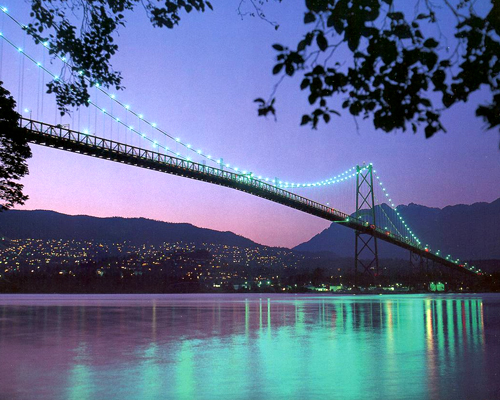“Vancouver is a very young city. It’s only about 130 years old,” says Manfred Scholermann in his Hamburg accent. “So the difference between old money and new money in Vancouver is about 30 years. To a European, this is very funny.”
(To his point, in 1907, Rudyard Kipling wrote, in a letter to his family, that “Vancouver is an aged city, for only a few days previous to my arrival the Vancouver Baby—i.e. the first child born in Vancouver—had been married.”)
Manfred and I are inching our way through early evening traffic headed towards narrow Lions Gate Bridge. One thing I’ve noticed about Vancouver is that the traffic is as bad as in L.A. When I mention this to Manfred, he says, “Actually, Vancouver has come up with a really great way of handling congestion—they don’t do anything about it. And that forces people to find alternatives to driving.”
Well, okay. There’s a certain pretzel logic in that, I suppose. Lions Gate Bridge itself has a rather interesting history. In 1932, the Guinness family used a bit of their beer money to buy 4,000 acres of West Vancouver mountainside through a syndicate called British Pacific Properties. The idea was to develop the land and turn it into the tony section of Vancouver. The only problem was that the only way to get there from downtown Vancouver was by ferry.
So in order to get people from downtown Vancouver to West Vancouver, a bridge was built, beginning in 1937, at a cost of $5,873,837.17 (Canadian). And West Vancouver was developed (and it is still the most fashionable part of town). And then in 1955, the Guinness family sold the bridge to the province of British Columbia for…(wait for it)…$5,959,060. So I guess they got their cake and got to eat it too.
Comments are now closed.


3 comments